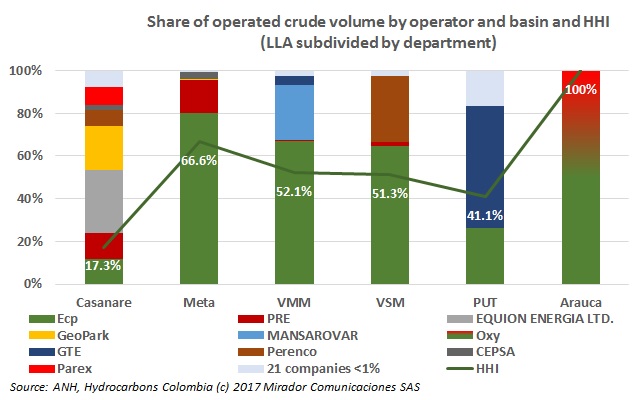The Colombian Association of Oil Engineers, Acipet celebrated Journalists’ Day and HCC attended the event. Topics such as the current labor situation for oil engineers, the industry’s projections for 2017 and fracking were discussed.
Colombia is not an oil country but depends on it economically. The nation’s exports have fallen for four consecutive years because of the oil crisis. In recent months, this item reported growth, again thanks to oil.
Initiatives to grant more royalties to oil-producing regions have been successful; projects will benefit the departments of Meta, Casanare, Nariño and Tolima, but irregularities regarding royalties’ management in Meta and Boyacá remain a cause for concern among authorities. These and other stories in our periodic summary.
The Energy and Gas Regulation Commission (CREG) released its management and results report for 2016. Last December CREG gave us a global balance for the year. This report goes into more detail on the regulated sectors. We will focus on Natural Gas and Propane.
Boyacá has a royalty budget of CoP$893B to finance 522 projects. However, the fact that there are pending balances for an amount of CoP$86B in 40% of the department’s municipalities is a cause for concern by local authorities.

This week’s “From our Analyst’s Desk” deals with market concentration, an economic concept regulators use to decide if there is or is not sufficient competition in an industry. That was a Colombia-wide view. Here we break down the results by basin.
The Colombian press revealed an investigation with the names of those who, during negotiations with Glencore, approved the entry of CB&I as Reficar’s construction engineering firm.
The Commission for Regulation of Energy and Gas (CREG) presented its proposed action plan for this year. The entity has big regulatory ambitions for natural gas and propane.
Improve investment and productivity levels, start the production phase in the Lorito and Troglón wells in Guamal, Meta, consolidate 10,000 jobs and educate the locals about the myths around the industry’s impact on the environment are the industry’s five challenges in Orinoquia.
Colombia and Peru signed ‘Inter institutional Cooperation Agreement’ to promote energy-mining sector development in both countries.